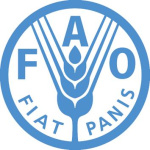- Settore: Agriculture
- Number of terms: 87409
- Number of blossaries: 0
- Company Profile:
Established in October 1945 with the objective of eliminating hunger and improving nutrition and standards of living by increasing agricultural productivity, FAO coordinates the efforts of governments and technical agencies in programs for developing agriculture, forestry, fisheries, and land and ...
A tank in which cells, cell extracts or enzymes carry out a biological reaction. Often refers to a growth chamber (fermenter, fermentation vessel) for cells or micro-organisms.
Industry:Biotechnology
A technique for sterilizing instruments. The instrument is dipped in alcohol (usually 95% (v/v) ethanol) and then the alcohol on the instrument is ignited, thus heat-sterilizing the tool surface.
Industry:Biotechnology
A technique for transferring denatured DNA molecules that have been separated electrophoretically, from a gel to a matrix (such as a nitrocellulose membrane) on which a hybridization assay can be performed.
Industry:Biotechnology
A technique in which an individual's DNA is analysed to reveal the pattern of repetition of particular nucleotide sequences throughout the genome.
Industry:Biotechnology
A technique in which protein is transferred from an electrophoretic gel to a cellulose or nylon support membrane following electrophoresis. A particular protein molecule can then be identified by probing the blot with a radiolabelled antibody which binds only the specific protein to which the antibody was prepared. Useful, for example, for measurement of levels of production of a specific protein in a particular tissue or at particular developmental stage.
Industry:Biotechnology
A technique of floating anthers on liquid medium developed by Sunderland. Anther dehiscence, pollen release and development occur at intervals of several days, and in different nutrient media.
Industry:Biotechnology
A technique of tissue culture; it is usually on solidified medium and initiated by inoculation of small explants or sections from established organ or other cultures (the inocula). Callus culture is used as the basis for organogenic (shoot, root) cultures, cell cultures or proliferation of embryoids. Callus cultures can be indefinitely maintained through regular sub-culturing.
Industry:Biotechnology
A technique that allows two segments of duplex DNA that are separated by thousands of base pairs (about 200 kb) to be cloned together. After sub-cloning, each segment can be used as a probe to identify cloned DNA sequences that, at the chromosome level, are roughly 200 kb apart.
Industry:Biotechnology
A technique that captures the image formed in a photographic emulsion as a result of the emission of either light or radioactivity from a labelled component that is placed next to unexposed film. The technique is used for detecting the location of an isotope in a tissue, cell or molecule. The sample is placed in contact with a photographic emulsion, usually an X-ray film. The emission of -particles from the sample activates the silver halide grains in the emulsion and allows them to reduce to metallic silver when the film is developed. In genetic engineering, autoradiography is most commonly used to detect the hybridization of a radioactive DNA (probe) molecule to denatured DNA in either the Southern transfer or colony hybridization procedures.
Industry:Biotechnology
